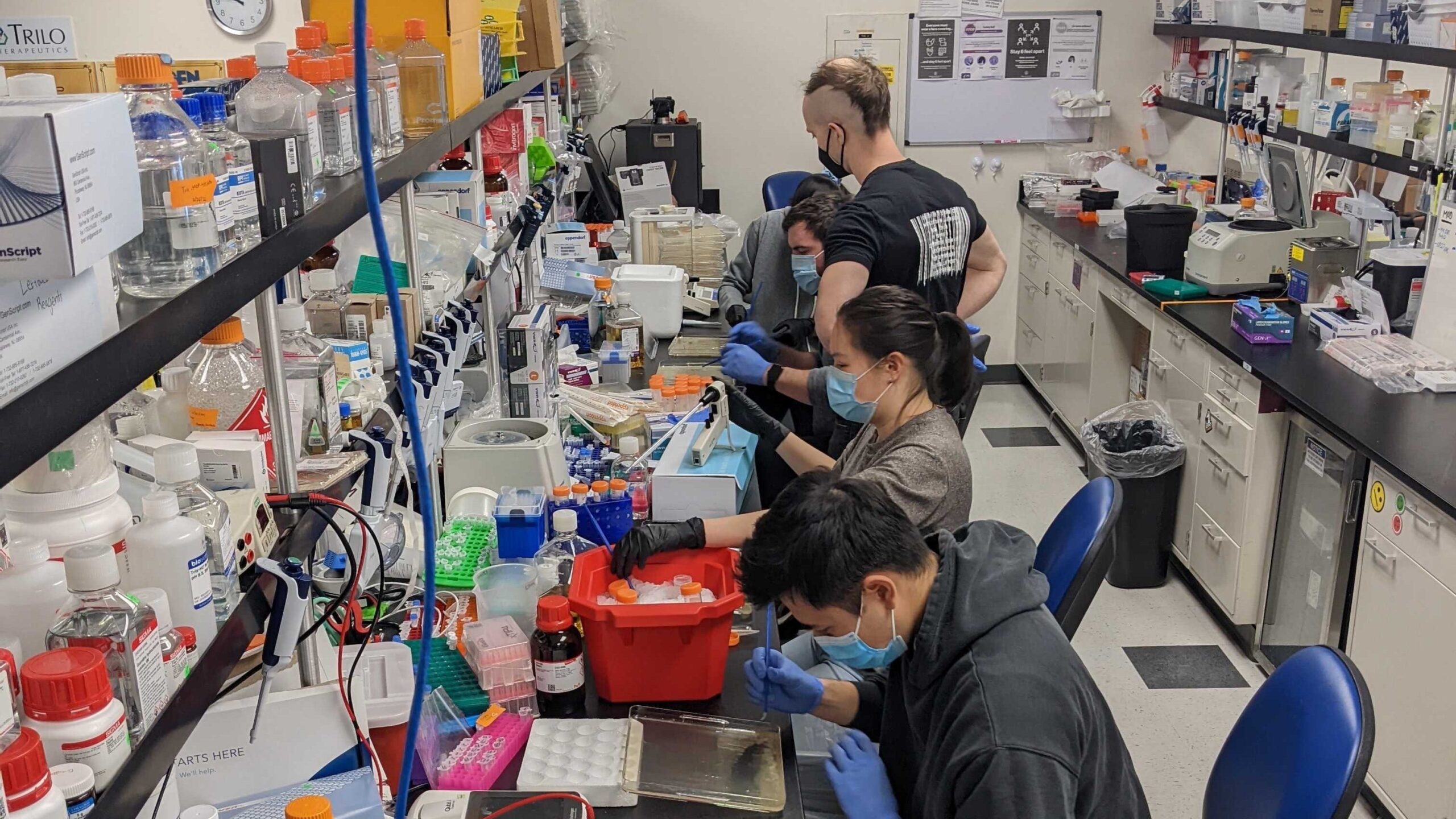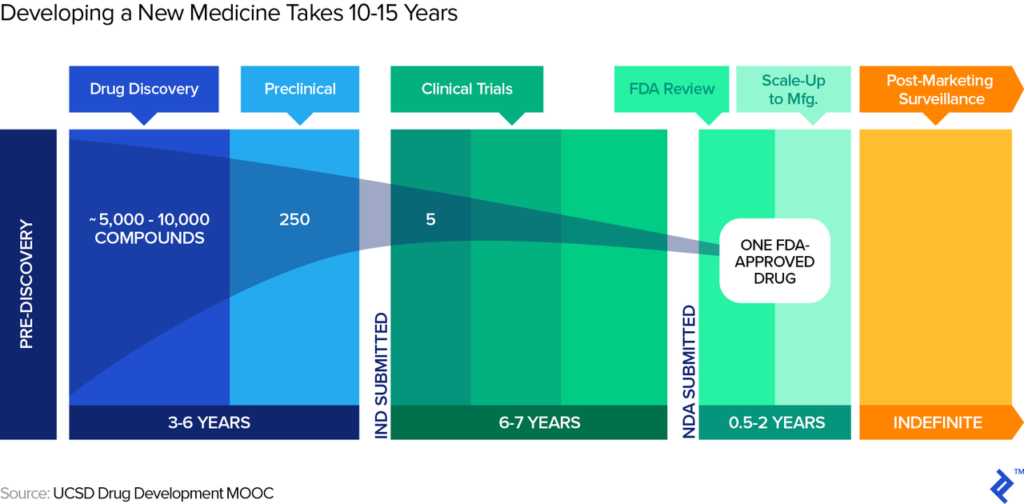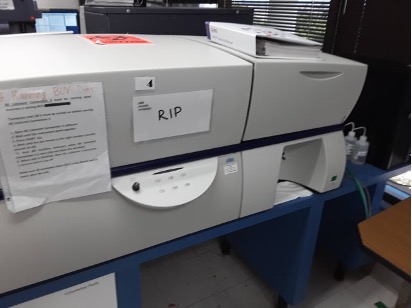It’s Saturday afternoon and it’s perfect weather for a picnic at Dolores Park. I’m introduced to a mutual friend when they eventually ask, “what do you do for work?” and to this day I have to pause every time.
Two years working at a biotech startup, and even some of my closest friends don’t understand exactly what I do between 8 to 8. So, every time someone asks me that question, I think about how many degrees away they are to the lab bench, and give an answer that’s usually some variation of:
“I work in a biotech startup [in San Francisco] as a biologist, trying to find cures for age-related diseases.”
In this three-part series of my first-ever blog posts, I want to break down that statement and go a little deeper on a few keyword, starting with “I work in a biotech startup.”
Note: in this post biotechs are startups that discover drugs

Biotechs are Professional Drug Hunters
First, to give some hopefully useful context: when I first moved to Silicon Valley I noticed many people confused “tech” with “biotech,” where the heuristics we employ on the combination of the words “bio” and “tech” are often: “hackers typing code + cells on a petri dish” or “making machines do stuff with robots on computers to figure out what kind of bacteria infect people.” While there are lots of different types of biotech(nology) companies, generally speaking a biotech (startup) exists to create a new drug or provide a medical service for a diseased group of people who are in need. So although biotechs are similar to tech (Zoom, Facebook, etc.) in that they create a product to sell to people, in biotech that product is a therapeutic or a drug like Advil or a completely new radiation-free cancer-fighting drugs of the future!
For more info on biotech vs tech: Celine Hailoua, founder of Loyal thoughtfully and succinctly elaborated on the differences between biotech and tech here*
This grand mission of drug discovery makes biotech startups therefore inherently unique, intense and exiciting. I love it, and I think there’s no other world like it. Here’s why:
- Science is hard.
The purpose of biotechs are to create a drug or therapeutic for a specific disease group. These diseases often have no cure, varying from rare congenital genetic diseases like Progeria that affect <1,000 people worldwide, to relatively common but complex diseases with no clear cause like Osteoarthritis.
After millennia of human exploitation, the library of plants has been emptied of its Vindications. There’s far less miracle discoveries, and the age of Scurvy and Bayer Asprin are most likely behind us.
New science discoveries are now enabled by complex machines our Drug Hunter ancestors could only imagine in their wildest dreams. But even though our machines have become increasingly sophisticated, for some reason, new drugs have become increasingly difficult to find. As we have started to challenge increasingly complex diseases, the biological “bar” seems to have gone up. In the modern age of drug hunting, we must approach the problem by carefully choosing our tools and methods of attack (transcriptomics, microfluidics, enzyme assays, bioinformatics).
But the machines won’t be enough. In this new frontier, you can’t do it alone. The most cutting-edge, high-impact research papers in academic biology labs now usually have at least six co-authors, with usually all of them having PhDs. Taking this influential 2016 paper for example, where it took sixteen PhDs to complete. And we’re not even mentioning how many years this all took.

Like with Perturb-Seq, great science now requires a great team. And these teams are no longer just from one subject either. The new frontier of biology is interdisciplinary, where you’ll often see a biologist, molecular chemist, biophysicist, mathematician, and an AI engineer in a room collectively bashing their head against a wall because their experiment didn’t work. The bar’s gone up, and having a great team is just the prerequisite. The real magic is in the collaboration, the teamwork, camaraderie. You have to lean on each other because you simply can’t do it alone.
In biotech, you’re fighting against the odds (>70% of all startups fail) together. You can’t do it alone, but maybe with this team, just maybe with a few years of hustling, you just might win. It’s intense, humbling and exhilarating to have some of the best scientists in the world relying on you to create something to help thousands to even millions of people suffering from disease.
It’s in the air, and you can feel it.
It’s amazing.
2. It’s a long, risky, and expensive journey

You think your prescription medicine was expensive? Well… it cost a fortune to make it from scratch. A glass (~250ml) of lab-grade water costs $50. This big fancy paperweight down here? It’s a flow cytometer that was ~$300,000 new. Don’t even get me started with all the different liquids you need just to run the machine… that’s another few hundreds bucks right there.
As we’ve started to tackle increasingly difficult problems in nature, we’ve equipped ourselves with a large arsenal of tools. But to use them, we gotta pay up. Every single step in drug discovery costs a lot of money. In the early stages of drug discovery, a company can go through hundreds of thousands of different drug candidates, just to find 100 that look like they kinda work. Maybe you start with in vitro or ex vivo (cells on a petri dish) models, where you can narrow the first 100 down to 50 or so.
But those cells are expensive. Common cell lines like HEK293T often used for drug development cost ~$500 a vial, and it costs hundreds of dollars to keep them alive in a petri dish every week. And in vivo experiments are even more expensive. Lab mice and rats are at least $50-100 each, and you’d need a few dozen for a well-powered study. Larger animals like pigs and non-human primates cost even more at over $5,000-20,000 each…
But the real expense for biotechs are in the clinical trials.

Patient recruiting, compensation, paying the hospitals, the doctors, synthesis of the drug, quality control, clinical research coordinators, the list goes on. And most, if not all, of this is coming out of the biotech’s pockets. On top of that, the original scientists from the company are still on payroll because they’re hedging their bets to find another drug candidate in case the trial fails (since 90% of them do).
And all this takes a lot of time. From the day you discover the drug until it’s sold the market, the entire process usually takes around ten years. The modern journey of drug discovery is therefore more like a marathon than a race. The process takes hundreds of millions of dollars from start to finish, and you rarely see any revenue until the drug starts being sold.
To most people, a company revenue stream like that is ridiculous. 10-15yrs until you see almost any return on your investment?? If I was in your shoes a few years ago, I wouldn’t have bat an eye if you preferred to try your luck at the slot machines. But as strange as it is, this is actually the defining feature of biotech startups that makes it special: front-end investment with huge risks and unfathomable reward. Euphoric ups and soul-sucking lows, where the most courageous, intelligent, crazy, risk-takers, win.
3. The Payoff
Though most biotechs don’t make it. When they do, they make it big.
In recent years, one of the best examples of a successful biotech startup has been Moderna, a Boston-based biotechnology startup (founded in 2010) that created a very unique product: mRNA vaccine.
While I won’t explain why mRNA vaccines were technologically innovative, Moderna has seen meteoric success just over the past three years. And in the past two years alone, the vaccines have helped reduce over 18 million hospitalizations and over 3 million deaths in the US. Although it took nine years for Moderna (and even longer for the field), they have undoubtedly delivered one of the greatest contributions to global health in this decade.
The financial payoff has (obviously) been enormous as well. In 2022 alone Moderna made over $19 billion in revenue. And in 2021? Over $18 billion, for a combined revenue of over $35 billion in two years.
And what’s even more striking is their 2020 revenue: $0.803 billion. And the year before? $0.060 billion (aka $60 million). Between the years 2020 and 2021, Moderna’s revenue went up by over 2,300%. A revenue jump so large that it’s almost unbelievable, if it wasn’t biotech.
Despite the payoff, the journey is long and arduous. The countless ups and downs make it easy to lose sight of the destination. Camaraderie, culture, and a good leader are essential to keep the team together through the hardest of times. In my opinion, this is the most important and distinctive characteristic of a biotech.
4. The Culture, and the Founders that build it
The most valuable asset of a startup are it’s people, and the one who leads them, the Founders, must be exceptional.
Contrary to the stern business executive stereotype of a CEO/CTO/CSO, most biotech founders are academically trained scientists. They’re the science nerds in high school who liked to mess with electrical boards and nerd out on biology textbooks. They were just like you.
And as an adult, they become experts in a scientific field. Training with the best scientists at the best universities, they come across a molecule or idea that they think can help people suffering from a disease.
But they too can’t do it alone, so they build a team that can do it with them.
You’re not working for them, you’re working with them. You’re hustling with them, staying late, having a few beers after hours. Biotech startups usually have a young team (average ~30yrs old) and that gives a lot of vibrance to the culture. When it’s still ~10 people, the “company” feels more like a family. Around 20, it’s like a little village. It’s a tight-knit community that’s filled with brilliant minds, weirdos and misfits, and you fit right in because you’re probably just like them.
It’s a totally unique experience that’s changed my life for the better, and I hope everyone can try it once in their life.
Final thoughts
In the age of modern drug discovery, it takes a team to win. Good people and great founders, collaboration, culture, and good science are just the beginning. To really win this game, it takes everything you’ve got. There’s no experience quite like it, and it may never make sense from the outside.
The countless hours, the pressure, the lows… To be honest, a part of me still doesn’t know what it is. Maybe we’re all just professional thrill seekers who only thrive under the extreme challenge of having so many cards stacked against us. Maybe we’re all science nerds at our core, who just love tinkering with expensive toys and holding a pipet. Or maybe we’re just masochists. Or maybe we genuinely and honestly love what we do. We’re the weirdos that’d rather spend countless nights planning experiments, poring over papers, trying and failing in this new frontier, than have a 9-5 job sorting through excel sheets and punching numbers waiting for the clock to strike 5.
We’ll give it everything we’ve got. And if it fails, at least we know we tried harder than anybody else.
Some people see the ugliness in this world, the disarray. I choose to see the beauty, and embrace the thrill. Because there’s really nothing quite like it. And that’s what I mean when I say I work in biotech.



